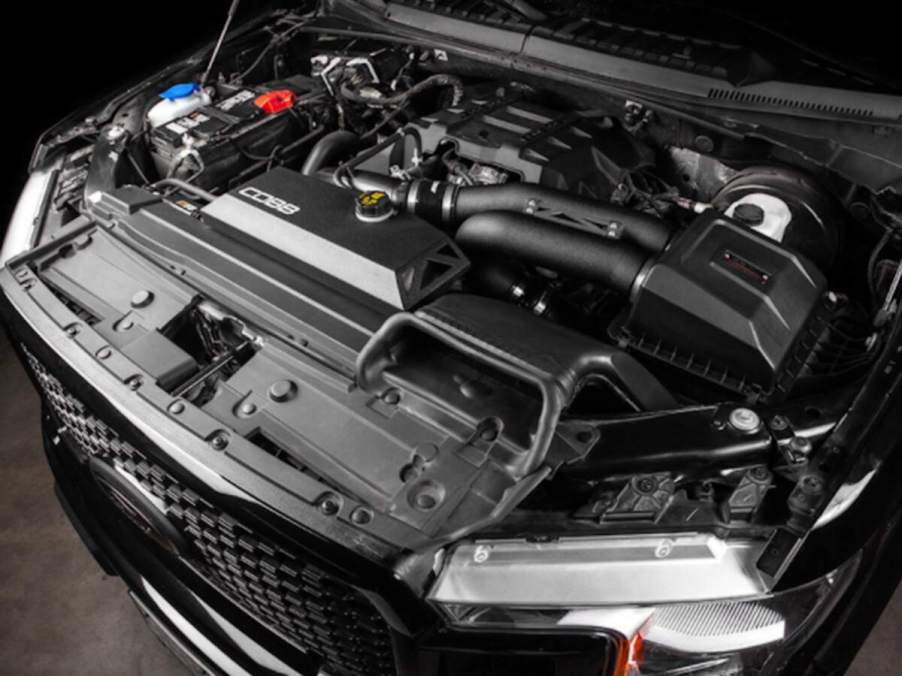
Go Small? Common Ford 2.7L EcoBoost V6 Problems You Should Know About
The 2.7-liter EcoBoost V6 is the Ford F-150 pickup’s smallest engine, but it packs a punch. Response, torque, and drivability all hew to the “Ford Tough” ethos. But you should know about the following F-150 EcoBoost problems.
Is the Ford F-150 2.7-liter EcoBoost V6 a good engine?

The twin-turbo 2.7-liter V6 roared onto the truck scene in 2015. Harnessing 315 to 335 hp and 350 to 400 lb-ft of torque, this F-150 engine boasts better specs than most V8s. The power range is a bit limited, but the better fuel economy and lower price make it a popular option nonetheless.
The 2.7-liter EcoBoost is an offshoot of the similar 3.5-liter V6. Both feature twin turbos and direct fuel injection. Ford produced this version for the 2015 to 2017 F-150, 2016 to 2018 Lincoln MKX, and other products.
In 2018, the automaker released the second-generation 2.7-liter EcoBoost V6. It cranked the torque to 400 lb-ft and combined port injection with direct injection. That helped fix one of the 2.7-liter’s earlier problems: carbon buildup. The second-gen V6 also brought other minor changes. This version remains in production and also sits under the hood of the new Ford Bronco.
What are the 3 most common EcoBoost V6 problems?

Three of the most common problems found in the 3.5-liter EcoBoost are as follows:
- Carbon buildup
- Oil pan leaks
- Issues with the spark plugs and ignition coils
Carbon buildup in EcoBoost engines
As noted, the carbon buildup affected the first generation of the engine. However, carbon buildup is a common problem in many pre-port injection engines.
Engine oil blow-by sticks to intake ports and valves. So in 2018, Ford added port injection. It acts as a flushing system to wash deposits into the cylinder charge. When the carbon accumulates, it can cause issues such as rough idling, misfires, hesitation on startup, and general power loss. However, you might notice some of these issues as the miles pile on.
F-150 2.7-liter EcoBoost oil pan leaks

This problem also primarily affects the first-generation 2.7-liter EcoBoost engine, mainly because the oil pans are plastic. That’s probably not the best material for this part. The pan can loosen with the constant expansion and contraction of heat cycles.
Still, it’s not a deal-breaker. And in 2018, Ford made a design change to correct the problem. The company ensured its smaller EcoBoost engine was engineered well and could take on most pickup truck demands.
2.7-liter EcoBoost spark plug and ignition coil issues
Replacement schedules indicate the spark plugs should last 80,000 to 100,000 miles. They don’t. So, rather than endure performance issues as you approach those numbers, replace the spark plugs earlier. Maybe 35,000 miles?
Whether the issue is coil packs or spark plugs, you’ll notice misfiring, rough idling, power loss, and the dreaded “check engine” light. If you have a code reader, TuningPro suggests pinpointing the misfiring cylinder. Swap the coil pack with one next to it. If the problem persists, the source is the coil. Otherwise, replace all six plugs. And don’t forget: Regular oil changes and monitoring functions go a long way toward engine longevity.



